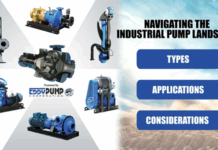The supply chain is a complex multi-faceted process that demands the collaboration of numerous departments in your business in order to ensure year-long efficiency. From sales and marketing, to communication and PR, all the way to manufacturing and fleet management and more, the success of your supply chain will rely heavily on your ability to manage numerous processes at the same time, but also integrate new solutions to make each process more efficient and effective.
Innovating your processes is imperative if you are to cut extraneous costs and reallocate some of your revenue towards business growth, especially if you’re running a small business but have big dreams of one day building an international supply chain. With that in mind, let’s talk about the best logistics solutions you can integrate into your operation to make your long-term goals truly feasible.
Considering the importance of optimizing processes for business growth, investing in a certificate in Delivery Management can provide valuable insights and strategies. This certification equips you with the knowledge and skills necessary to streamline logistics operations and pave the way for achieving ambitious long-term goals, such as establishing an international supply chain.
Scheduling and inventory management

First things first, you can’t hope to build a sustainable supply chain that doesn’t waste financial and other resources if you are still manually managing your inventory and scheduling workflow. It’s important that you keep a close eye on your inventory levels at all times through an automated software solution, but also to manage your inventory proactively by analyzing sales trends, and sensing the demand for all of your products in each of the markets you occupy.
This will allow you to scale your inventory wisely, and invest in the goods that are moving quickly and are expected to rise in popularity in the next quarter. More importantly, though, this type of optimization will allow you to schedule your employees’ hours wisely, and anticipate any spikes or drops in the workload ahead of time.
Leverage the power of big data analytics
The modern supply chain relies heavily on timely and accurate information, as having the right information at the right time will allow you to save money on everything from inventory management, to marketing and sales, all the way to shipping and more. That said, obtaining these valuable industry insights manually is nowadays a cumbersome task that simply won’t yield the results you’re after, at least not at the right time.
That’s because there is just too much data flowing around these days to be successfully collected and organized into actionable reports. Instead of wasting money and human-power, you can integrate AI and big data analytics to obtain and organize all of that data into goals and tactics in a matter of minutes as opposed to days. With machine learning, this process will become even more efficient over time, allowing you to create detailed forecasts and optimize your supply chain ahead of time.
Optimize the manufacturing process

Manufacturing is one of the pillars of the supply chain in many industries, and suffice to say that this too is a multi-faceted process that requires you to manage numerous departments and handle numerous tasks at the same time in order for it to function without a hitch. From purchasing management to material sourcing, from inventory tracking to data management, all the way to finance and accounting, running a successful manufacturing department or business is a complex challenge.
For this reason, forward-looking leaders around the world are currently integrating comprehensive manufacturing software for small business in order to leverage this cloud-based technology and all of its features to automate, expedite, and make every process associated with manufacturing more cost-effective in the long run. In turn, this type of software helps to make logistics more flexible and able to overcome the challenges of an evolving consumer market.
Manage your payments with technology
Another important solution that could significantly reduce your expenses is payment and finance software. This is especially important if you’re expanding into the international marketplace and have to deal with overseas payment and financing institutions. A specialized piece of software or a payment platform can help you to send and receive international payments quickly and without risk, all the while offering favorable exchange rates that will allow you to maximize savings.
Invest in asset tracking and monitoring
And finally, logistics is also about careful asset management, tracking, and upkeep. It’s important that you know exactly where all of your assets are at any given moment, and to monitor their status in order to act ahead of time and meet your customers’ expectations. With asset tracking software, you will be able to make accurate shipment and transportation schedules, minimize transportation costs, safeguard your vehicle and human assets, and minimize risks or uncertainties that might put a dent in your budget.
Wrapping up
Running an efficient and effective supply chain requires you to optimize many processes in your business and across numerous departments. Integrating these solutions into your logistics process will help you minimize risk on numerous fronts, and build a stable supply chain that will evolve along with the industry and the markets you serve.
Find a Home-Based Business to Start-Up >>> Hundreds of Business Listings.

















































